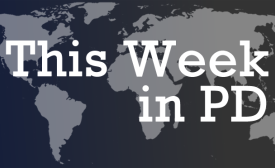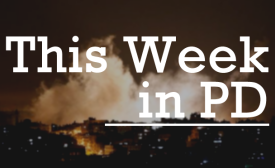hamas
From the Israeli perspective, there’s some public diplomacy benefit here. The world is being somewhat distracted from what’s going on in Gaza, and now Israel is not the only country bombing Islamic extremists. But these are small comforts at best. Europe, in particular, seems to have gotten fed up with the IDF’s operations in Gaza, even as it declares its understanding for Israel’s right to defend itself. And despite the renewal of rocket fire, even the United States is expecting Israel to come to some long-term agreement with Hamas.
Thanks to flimsy copyright laws in the region, Israeli and Palestinian television stations routinely tap into each other’s transmissions and broadcast them to their viewers. Since Gazans and Israelis are barred from entering each other’s territories, this swap of feeds often stands in for reporters on the ground.

Are there alternative ways to end the nearly month-long Israel-Hamas conflict?
The bruising battle between Israel and Hamas in Gaza has carved out a bloody new front in social media — one that has bypassed traditional news outlets and burned a straight path toward advocates on all sides.
The $1-billion program, subsidized by the United States, has served Israel well in Operation Protective Edge, its recent campaign against Hamas in Gaza. Palestinian militants have lobbed almost 1,000 missiles into Israel, but Iron Dome's interceptors have struck down 87% of their targets, according to the Israelis, allowing life in Israel’s cities to proceed more or less normally. How does it work?

As tensions between Israel and Hamas continue to escalate in the Gaza Strip, another battle is raging on social media for the support of American and global audiences.
The lethal military confrontation between Israel and Hamas is being mirrored in a bitter clash on the battlefield of social media. Each side has taken to Twitter, Facebook and YouTube to denounce the other, and to present accounts that are at best partial and often blatantly distorted. The propaganda war between Israel and the Palestinians is not new, but this battle-round is being fought with unprecedented ferocity.
The Prime Minister’s Office and Foreign Ministry have been hard at work spreading Israel’s message in Operation Protective Edge for the last week in an effort that is mostly paying off, experts on public diplomacy in and out of the government said Sunday. “We see [public diplomacy] as a war front like any other,” Foreign Ministry Deputy Director-General for Communications and Public Diplomacy Arthur Koll explained.







